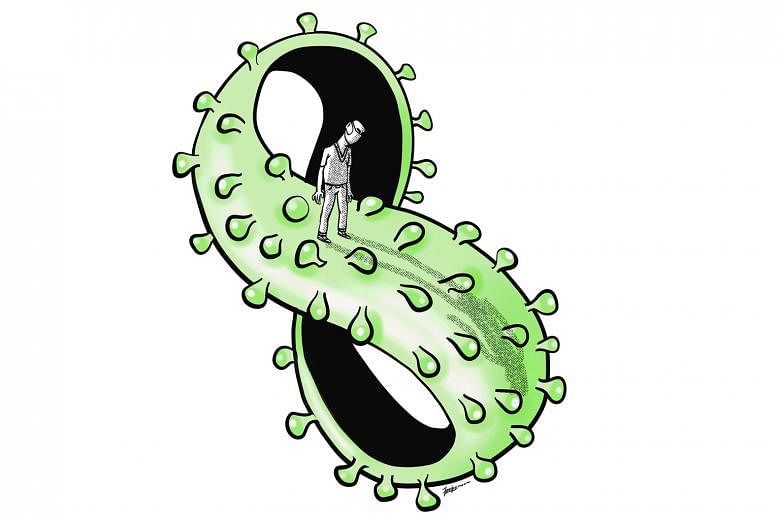SINGAPORE - A viral video showing a gathering of hundreds on New Year's Eve in Clarke Quay was hugely troubling for a nation locked in a grim battle to keep the coronavirus in check.
Covid-19 fatigue is real after two years of restrictions but the authorities have not spared the stick when rules are broken.
Agencies reviewing closed-circuit television footage will take action against those found to have breached the rules at Clarke Quay, Finance Minister Lawrence Wong, who is also co-chair of the multi-ministry task force on Covid-19, said on Wednesday (Jan 5).
Over the last two years, errant businesses have been taken to task and people thrown behind bars for not masking up.
By and large though, Singaporeans have played ball; they deserve credit for helping to keep the number of serious infections and deaths fairly low. But the battle is far from over.
Singapore is bracing itself for a major Omicron wave and cases could hit up to 15,000 a day. That is three times the peak of 5,000 infections at the height of the Delta wave last October.
One consolation is that Omicron infections appear milder and boosters seem to work to prevent serious infections.
But even as it prepares for this imminent wave, Singapore is discussing how 2022 will play out.
Prime Minister Lee Hsien Loong, in his New Year's Day message, said this will be a time of transition, with the economy recovering steadily after two years of the pandemic. A key point he made was that the upcoming rise in the goods and services (GST) tax will be tackled in Budget 2022, on Feb 18. The message is clear: 2022 must not be 2020-too.
This is the year to walk the Covid-19 endemic talk and truly learn to live with the virus. It is not about going back to pre-pandemic days but about finding new ways to operate and live. It is something all businesses and organisations as well as individuals will have to think about.
Relying on handouts and grants cannot be the long-term solution for struggling businesses.
As government help schemes are progressively rolled back, businesses will have to make tough choices - expand, downsize, pivot or call it a day. Transition is a must - to lift the economy, rebuild the air hub and help Singaporeans reclaim their lives. But it will not be easy - for the country or its people.
The fear of being infected remains real for many, even if they have had two jabs plus the booster, and know that vaccines help to significantly reduce the risk of serious illness.
Anecdotally, we hear of people who are afraid to leave home, especially if vulnerable seniors are involved. Also, many still feel uneasy in big crowds and worry about travelling, lest they be stuck overseas if the rules change.
Getting people back to the office will not be easy either - though it is probably not just fear at play here. Used to the comforts of working from home, not all see the need to return, and for sure not every day. Companies must give staff reasons to step into the office.
And if Singapore does see as many as 15,000 Omicron cases a day, making the transition will be even tougher. But it must be done if we are to become a truly coronavirus-resilient nation. Singaporeans will have to learn to live with Covid-19, even if there remains some trepidation.
Planning, vaccines, good hygiene and personal responsibility will hopefully help.
Despite the challenges of 2021, it ended on a high when shuttler Loh Kean Yew became the first Singaporean to win the World Championships on Dec 19. Le Le - the first panda cub to be born here - has put smiles on many faces since he started receiving visitors at his home in River Wonders.
When 2022 comes to a close, the hope is that Singapore will still be smiling, stronger and more Covid-19-resilient.


